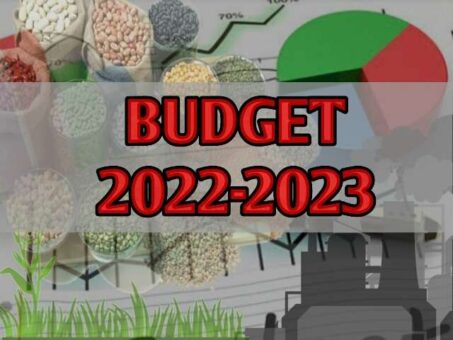Pakistan is likely to increase sales tax rate to 18 per cent in the federal budget 2022-2023, which is scheduled on June 10, 2022. The existing normal sales tax rate is 17 per cent.
According to Budget Preview 2022/2023 issued on Thursday, analysts at Arif Habib Limited said the government is considering to raise an additional Rs400 billion – Rs450 billion during next fiscal year 2022/2023.
READ MORE: PM Shehbaz assures favorable measures on CNIC requirement
For this purpose, the analysts said, the government plans to raise revenue from the following measures:
- Increase in general sales tax (GST) from 17 per cent to 18 per cent
- Increase in GST on fertilizer products from 2 per cent to 17 per cent
- Increase in corporate tax rate / windfall levy by 3 per cent
- Incremental super tax of 3 per cent on commercial banks
- Increase in personal income tax
- Increase in federal excise duty (FED) by Rs 500/ ton on cement
- Increase in FED on tobacco
- Increase in Customs Duty from 2 per cent to 6 per cent on edible oil imports
- FBR’s administrative measures
- Imposition of additional taxes on real estate.
The analysts said that the fiscal policy should remain supportive of the economy in the short term, with targeted measures to collect tax and reduce expenditure, backed by credible medium –term fiscal consolidation plan.
READ MORE: New tax measures likely in budget 2022-2023
“However, in short term, need of the hour is taking tough fiscal measures given the tight fiscal situation.”
Pakistan achieved total revenue growth of 18 per cent during the first nine months (July – March) 2021/2022 to Rs5.4 trillion up from Rs4.6 trillion in the corresponding months of the last fiscal year, which comes out to be 9.2 per cent of the GDP against 9 per cent in the same period last year.
The analysts said that the total tax revenue collection was up by 33 per cent year on year (YoY) to Rs4.82 trillion while non-tax revenue of Rs1.05 trillion, displayed a decline of 14 per cent YoY.
READ MORE: Pakistan Budget 2022-2023 – estimates
The government expects the tax revenue collection to settle at Rs 7.9 trillion for FY23b, a jump of 19 per cent YoY compared to tax revenue of pKR 6.6 billion for FY22E. Likewise, to ensure prudent fiscal management, IMF also proposed stringent FBR tax revenue target of Rs 7.26 trillion compared to Rs 6.1 trillion for FY22E, which is much needed given the overall fiscal situation of the economy. Also, from the government’s standpoint, in order to ensure growth moderation, the analyts believe that the government will not shy away from putting additional major tax burden on the different economic classes of the community and might take some non-populous taxation measures in order to ensure the same.
The government is planning to raise an enormous total tax collection target of Rs 7.9 trillion through new taxes worth Rs 400-450 billion, additional taxes on higher income salary bracket, raising Rs 4.7 trillion through indirect tax measures, and the rest is likely to be collected from administrative measures and by bringing more people under the tax net. They believe direct tax collection will likely increase due to broadening tax base as government would be targeting to increase the number of income tax filers in the upcoming year.
READ MORE: Compliance cost much higher for corporatization: PSX
Indirect tax contributes around 60 per cent to the overall tax revenue coming in mainly from three major heads including Custom Duty, Sales tax and Federal Excise Duty which contributed around 25 per cent, 67 per cent and 8 per cent, respectively to the total indirect tax collection during 9MFY22. Share of sales tax and custom duty increased in 9MFY22 due to surge in imports of various commodities amid an uptick in aggregate demand of the economy. Going forward, indirect tax contribution is likely to increase by almost 20 per cent (Rs 4.7 trillion) in FY23B due to higher sales tax while higher import bill is likely to earn more tax revenue from custom duties.
Government expects non-tax revenue collection to increase by 12 per cent to Rs 1.6 trillion in FY23 with Petroleum Development Levy (PDL) expected to settle at around Rs 500 billion. The analysts at Arif Habib Limited believe the collection in lieu of PDL is likely to be higher YoY in FY23 with an assumption that government increases it by Rs – 22/litre on MS and HSD. Currently PDL stands at Rs 125 billion during 9MFY22. Another constituent that is likely to support the overall non-tax revenue is expected to be State Bank’s profits. They expect it will be more than last year’s number mainly due to higher interest rates during July – March 2021/2022.




